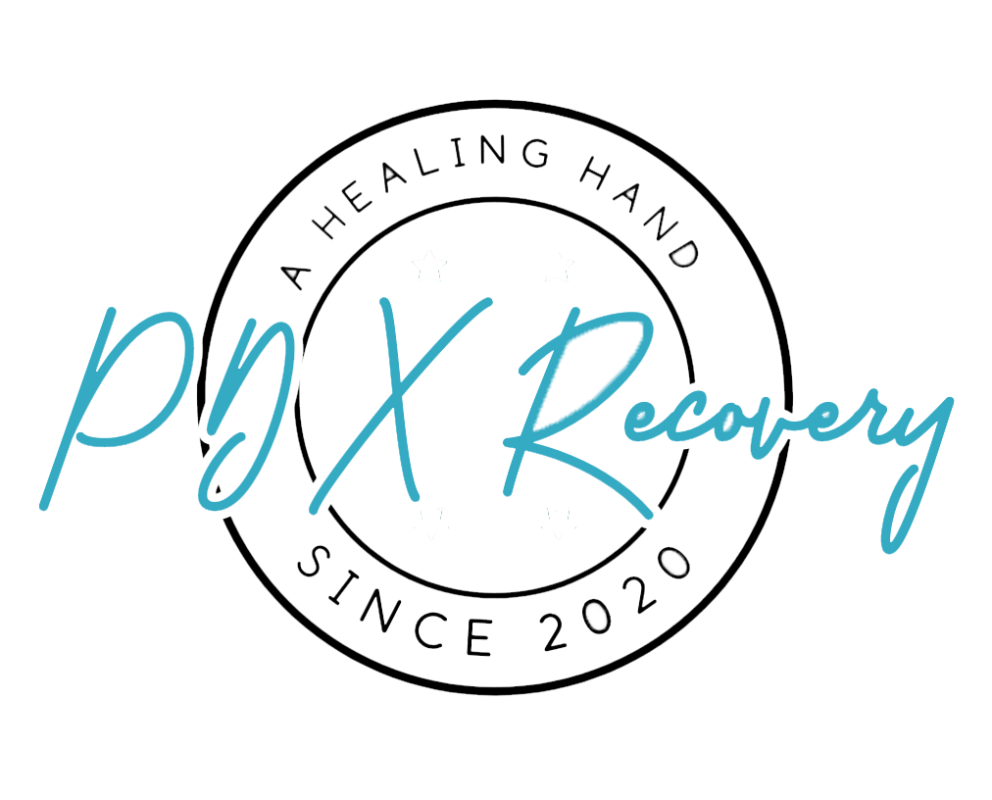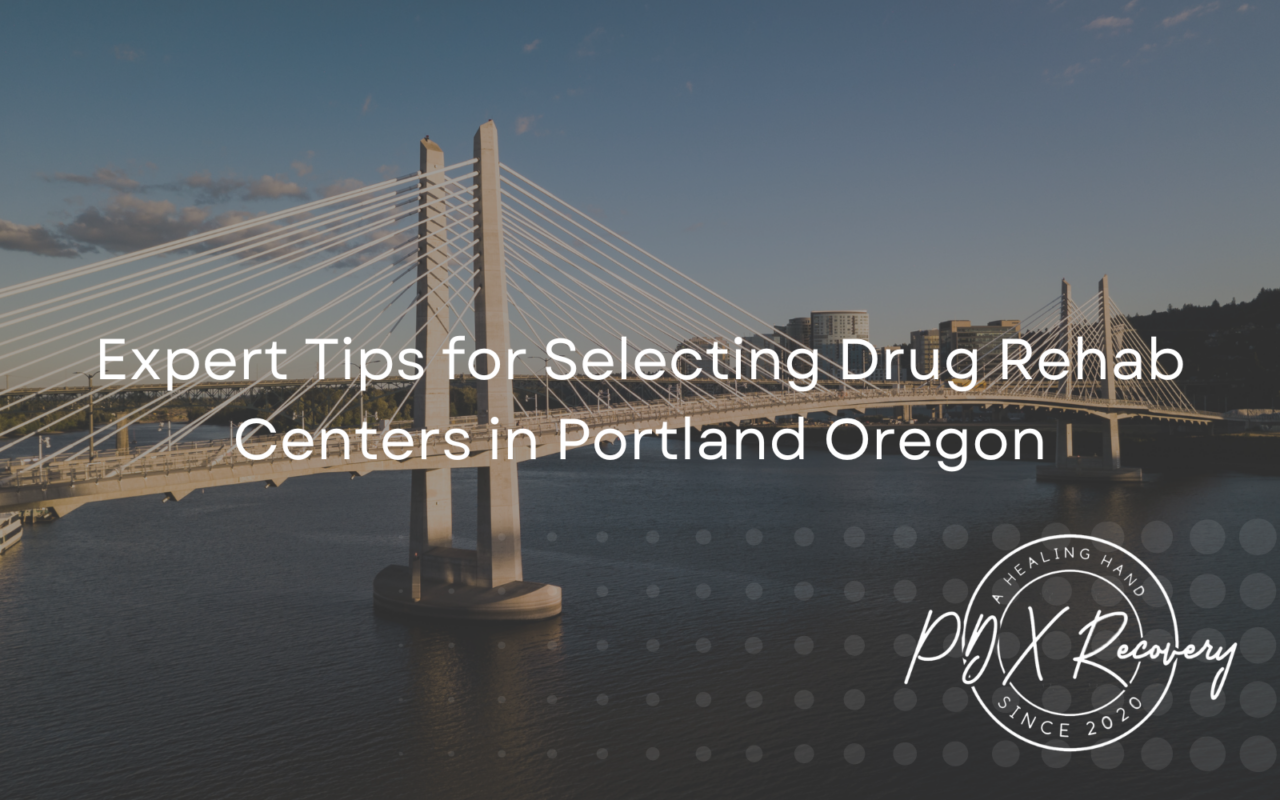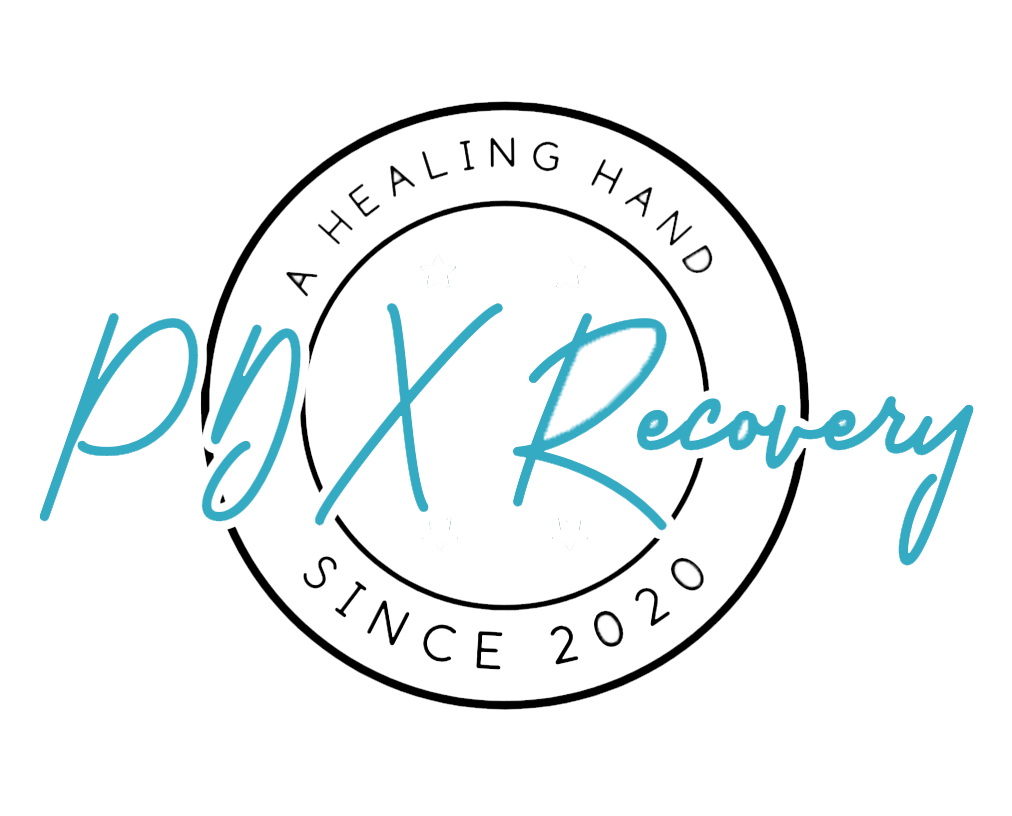There are numerous drug rehab centers in Portland, Oregon, and finding the right one is a crucial step toward recovery. For families of addicts and individuals seeking to overcome addiction, finding a suitable facility can be overwhelming. At PDX Recovery, we’re here to help guide you through this process. In this blog, we’ll share expert tips for selecting drug rehab centers in Portland, Oregon. You’ll learn how to research options, verify credentials, consider specialized programs, tour facilities, and assess aftercare services to make an informed decision that supports a successful recovery.
The Drug Addiction Problem in Portland, Oregon
Portland, like many cities across the United States, is grappling with drug addiction. The opioid crisis, alongside an increase in methamphetamine use, has impacted countless families. According to the Oregon Health Authority, thousands of residents suffer from substance use disorders, making the need for effective drug rehab centers in Portland, Oregon, more urgent than ever.
In our beautiful city, the addiction issue is pervasive, affecting all walks of life. The availability of illicit drugs, compounded by challenges such as homelessness and mental health issues, has created a perfect storm. As a result, we’ve seen a rise in drug-related crimes and emergency room visits, highlighting the dire need for comprehensive and effective treatment options. At PDX Recovery, we understand that addressing this crisis requires a holistic approach that includes access to top-notch drug rehab centers in Portland, Oregon, harm reduction strategies, and enhanced public education on the risks of substance abuse.
The Importance of Selecting the Right Rehab Center
Choosing the right rehab center can significantly influence the success of recovery. A well-matched facility provides the essential support, environment, and treatment methods tailored to individual needs. Making an informed decision ensures that the recovery process has a solid foundation.
At PDX Recovery, we believe that the right rehab center offers more than just treatment—it provides a supportive community and a structured environment conducive to healing. The quality of care, the expertise of the staff, and the availability of specialized programs can all impact the effectiveness of the treatment. For instance, a facility offering dual diagnosis treatment can address both addiction and any underlying mental health issues, improving the chances of long-term recovery.
Moreover, selecting a rehab center that aligns with the individual’s values and preferences can enhance engagement in the treatment process. Whether it’s a holistic approach that includes activities like yoga and meditation or a program that emphasizes evidence-based therapies like cognitive-behavioral therapy, finding a facility that resonates with the individual can make a significant difference.
Factors to Consider When Choosing Drug Rehab Centers in Portland, Oregon
When researching and comparing different drug rehab centers in Portland, Oregon, it’s essential to consider various factors that can impact the effectiveness and success of treatment. One crucial factor is the location of the facility. Some individuals may prefer a rehab center close to home for family involvement and support, while others may benefit from being further away from familiar triggers and environments.
Family involvement is another critical aspect to consider. Addiction not only affects the individual but also their loved ones. Many drug rehab centers offer family therapy or support programs to help heal these relationships and provide a strong support system for the individual in recovery.
Cost and insurance coverage are other important factors to consider. Addiction treatment can be expensive, and it’s crucial to understand the cost of different programs and whether insurance will cover all or part of it. Some facilities may offer financial assistance or payment plans for those without insurance.
It’s also essential to consider the types of therapies and treatments offered at a rehab center. Evidence-based approaches such as cognitive-behavioral therapy (CBT), dialectical behavior therapy (DBT), and motivational interviewing have been proven effective in treating substance use disorders. Additionally, some individuals may benefit from holistic approaches like yoga, meditation, art therapy, or equine therapy.
Lastly, it’s crucial to find a rehab center that aligns with personal values and preferences. Whether it’s a faith-based program, LGBTQ+ affirming environment, or focus on outdoor activities and adventure therapy, finding a treatment center that resonates with the individual can increase motivation and engagement in the recovery process. Overall, there are many factors to consider when choosing a drug rehab center, but doing thorough research and asking questions can lead to finding the best fit for an individual’s unique needs and circumstances. With proper support and evidence-based treatment, individuals can overcome addiction and achieve long-term recovery. So if you or someone you know
Types of Programs
An inpatient program, also known as residential treatment, involves living at the rehab center for a set period of time and receiving around-the-clock care. This type of program is typically recommended for those with severe addiction or co-occurring mental health issues and provides a highly structured and supportive environment. Inpatient programs often offer various therapies, group and individual counseling, and support services to help individuals address underlying issues that contribute to their addiction. They also provide medical supervision and detoxification services for those who need them. Overall, an inpatient program can provide intensive care and support for those seeking recovery from drug addiction.
On the other hand, outpatient programs offer more flexibility for those who need to balance treatment with other responsibilities such as work, school, or family commitments. These programs are designed to provide support and structure while allowing individuals to maintain their daily routines and obligations. Outpatient programs typically involve scheduled therapy sessions and group meetings, where participants can share their experiences and learn from others facing similar challenges. This setup allows individuals to apply what they learn directly to their everyday lives, making it easier to integrate new coping strategies and behaviors. Furthermore, outpatient programs often include additional resources such as workshops, educational materials, and access to support networks, enhancing the overall treatment experience.
Some centers may also offer intensive outpatient programs (IOPs) or partial hospitalization programs (PHPs) that provide a higher level of care than traditional outpatient services. IOPs often involve multiple therapy sessions per week, combining the intensity of inpatient care with the flexibility of outpatient treatment. PHPs, meanwhile, offer a structured environment with a significant amount of daily support, usually during daytime hours, allowing individuals to return home each evening.
Understanding these different options can help individuals and their families make informed decisions about the type of care that best suits their needs and circumstances.
Check Credentials and Accreditation
The importance of choosing a rehab center with proper credentials cannot be overstated. Accredited facilities adhere to rigorous standards of care and safety. Look for accreditation from reputable organizations such as the Commission on Accreditation of Rehabilitation Facilities (CARF).
Verifying credentials is straightforward. Check with state licensing boards or ask the rehab center directly for proof of accreditation. This helps ensure that the facility maintains high-quality treatment standards. Accreditation signifies that the center has met established standards for clinical care, facility management, and patient safety, providing an added layer of assurance for those seeking treatment.
In addition to accreditation, consider the qualifications and experience of the staff. Effective addiction treatment requires a multidisciplinary team, including medical doctors, psychologists, counselors, and support staff. Look for centers that employ certified addiction specialists and therapists with experience in treating substance use disorders.
Consider Specialized Treatment Programs
Specialized treatment programs can offer significant benefits. These programs cater to specific demographics or methods, making the treatment more personalized. For example, gender-specific, LGBTQ+, and age-specific programs address unique challenges faced by these groups.
In Portland, numerous resources are available to find specialized programs. Local support groups and national directories can guide you in locating a program that aligns with your needs and preferences. For instance, some drug rehab centers in Portland, Oregon, may offer programs tailored to veterans, individuals with co-occurring mental health disorders, or those who have experienced trauma.
Specialized programs can enhance the effectiveness of treatment by addressing the unique needs and experiences of different populations. Gender-specific programs, for example, can provide a supportive environment where individuals feel more comfortable discussing sensitive issues. Similarly, LGBTQ+ programs can offer a safe space for individuals to explore their identity and address any related challenges in a supportive community.
Tour the Facility and Ask Questions
Touring the facility, whether in person or virtually, provides a clearer understanding of what to expect. It allows you to assess the environment and the treatment approach firsthand.
During the tour, ask pointed questions. Inquire about staff credentials, treatment methods, and success rates. Understanding these aspects will give you confidence in the facility’s ability to support recovery. Pay attention to the cleanliness and overall condition of the facility, as well as the atmosphere and interactions between staff and patients.
Key questions to ask during the tour include:
- What types of therapies and treatments are offered?
- What is the staff-to-patient ratio?
- What are the qualifications and experience of the treatment team?
- What is the typical duration of the treatment program?
- What are the success rates and how are they measured?
- What aftercare services are provided?
The answers to these questions can help you gauge the quality of care and the likelihood of a successful recovery. A facility that is open and transparent about its operations is more likely to provide a trustworthy and effective treatment experience.
Consider Aftercare Services
Aftercare services play a crucial role in long-term recovery. These services provide ongoing support to maintain sobriety after completing the primary treatment program.
Common aftercare options include support groups, counseling, and alumni programs. When choosing a rehab center, ensure they offer comprehensive aftercare services to help sustain recovery efforts. Aftercare can involve regular check-ins with a counselor, participation in support groups like Narcotics Anonymous (NA), or engagement in sober living communities.
The transition from a structured rehab environment back to everyday life can be challenging, and aftercare services provide the necessary support to navigate this period. They help individuals develop coping strategies, build a support network, and address any challenges that arise during the early stages of recovery.
Effective aftercare services are tailored to the individual’s needs and may involve a combination of different supports. Some drug rehab centers in Portland, Oregon, offer intensive outpatient programs (IOPs) or partial hospitalization programs (PHPs) as part of their aftercare, providing a higher level of care for those who need it. Others may offer vocational training, educational opportunities, or recreational activities to support long-term recovery.
Getting the Care You Deserve
Out of all the drug rehab centers in Portland, Oregon, choosing the right one is pivotal for embarking on a successful path to recovery. By following expert tips—such as researching options, verifying credentials, considering specialized programs, touring facilities, and evaluating aftercare services—you can make a well-informed decision that supports lasting recovery.
At PDX Recovery, we understand that every journey to recovery is unique and requires personalized care. Whether you’re seeking help for yourself or a loved one, we’re here to assist you every step of the way. Take proactive steps today to pave the way for a healthier tomorrow.
For further guidance or to explore our comprehensive treatment options, reach out to our dedicated team. Together, we can overcome addiction and build a brighter future, one step at a time. For more information visit our website at https://pdx-recovery.com/ or call us at (971) 256-9087.
FAQs
- What types of treatment programs are available at drug rehab centers in Portland, Oregon?
- Drug rehab centers in Portland, Oregon, offer a variety of treatment programs including inpatient, outpatient, intensive outpatient programs (IOPs), partial hospitalization programs (PHPs), and specialized programs for specific demographics.
- How can I determine if a rehab center is accredited and reputable?
- Look for accreditation from reputable organizations such as the Joint Commission or CARF. Check the credentials of the staff and read reviews and testimonials from former patients.
- What should I consider when choosing between inpatient and outpatient programs?
- Consider the severity of the addiction, the need for medical detox, and your daily responsibilities. Inpatient programs offer 24/7 care and a structured environment, while outpatient programs provide more flexibility.
- How do holistic therapies enhance the recovery process?
- Holistic therapies address the mind, body, and spirit, promoting overall well-being. Treatments such as yoga, meditation, acupuncture, and art therapy can complement traditional therapies and support long-term recovery.
- What role does family support play in addiction recovery?
- Family support is crucial for rebuilding relationships and providing encouragement during and after treatment. Choose a rehab center that involves family members in the recovery process through therapy sessions and support groups.







